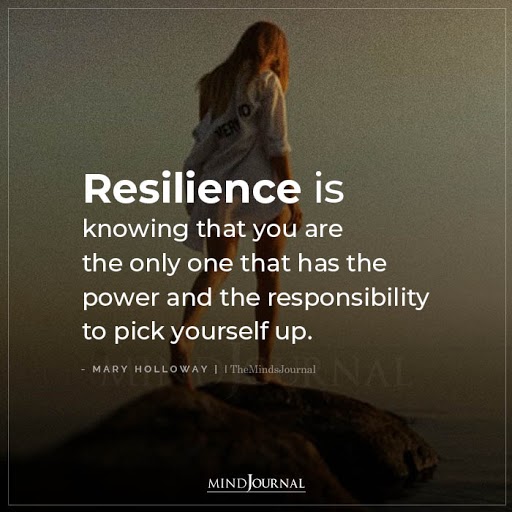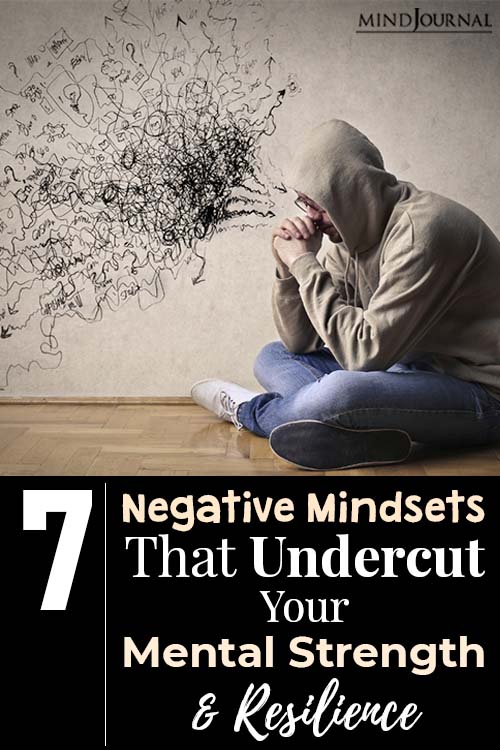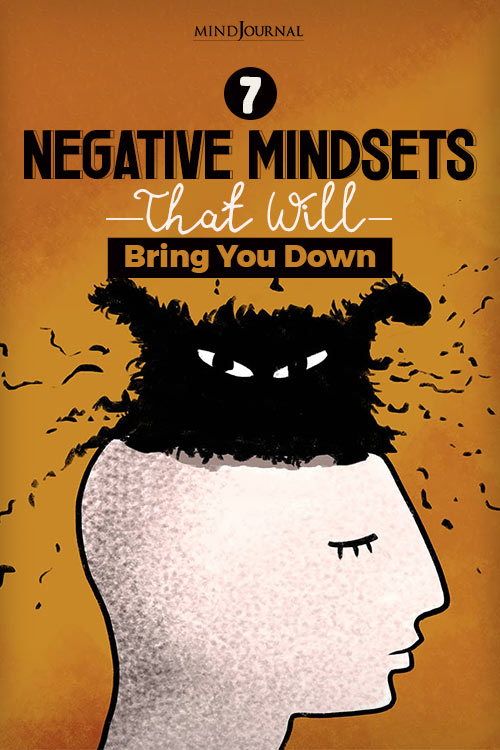Did you know that how you think can greatly influence your mental strength? Revealing seven negative mindsets, that can undercut your resilience and strength.
- Last week, a student approached me after a workshop and asked, “Do you know anything about the imposter syndrome?”
- A lawyer I collaborate with attributes her rise from a rural small town to an Ivy League law school and beyond to luck.
- Many professionals with whom I work tell me how their thinking keeps them stuck, lying awake at night going over and over something they wish they would have said differently or drives their procrastination.
One of the most important skills I teach clients is how to identify core values and beliefs which create rigid ways of thinking that keep them stuck or, worse, having the wrong fight instead of the right conversation. When I ask busy professionals if they understand what “catastrophizing” is before I explain it, most raise their hands.
You can increase your mental strength and resilience via a number of pathways, but one of the most important is to develop the ability to think flexibly and accurately during challenge and adversity.

Resilient thinkers are better problem solvers, more quickly switch to Plan B when an idea or strategy doesn’t work, and view their stress response as a challenge, rather than a threat.
These seven negative mindsets examples that interfere with your mental strength and resilience:
1. Imposter Syndrome.
Imposter syndrome is a deeply held belief of intellectual phoniness and sounds like this: “Man, I got lucky this time. They will soon realize that I don’t have a clue what I’m talking about.”
Despite a lot of evidence to the contrary, like degrees, promotions, or other successes, imposter syndrome makes it difficult for people to internalize or accept their success.
While a number of different traits and cognitive features nourish imposterism, the research suggests it is likely some combination of low efficacy (see below) and maladaptive perfectionism that overtime undercuts mental strength and resilience.
Read How To Defeat Imposter Syndrome and Bring Success Into Your Life
2. Low Efficacy.
Efficacy is the belief in your ability to solve work/life challenges and succeed. In short, it’s confidence. It’s also domain-specific, which means that you may feel highly confident negotiating a contract, but have little confidence in leading a new committee.
High efficacy has been shown to be a strong predictor of positive affect and activates adaptive coping strategies, such as planning, positive reframing, and acceptance.
In addition, people with high efficacy are better able to identify new business opportunities, create new products, think creatively, commercialize ideas, and persevere under stress and pressure.
Read 13 Characteristics Of A Mentally Healthy Person
3. Fixed Mindset.
If efficacy is the belief in your ability to solve work/life challenges and succeed, then the first determination you’re going to make is whether or not you have the capacity to develop the ability in question (e.g., public speaking, business development, networking, teaching new material to others, playing basketball, etc.).

People with fixed mindsets believe that their abilities are innate and unchangeable and that no amount of additional “trying new strategies out” will grow that capacity.
As a result, those with a fixed mindset feel pressure to prove themselves over and over (perfectly, the first time they’re trying something), avoid challenges, and give up easily, none of which builds confidence, mental strength or resilience.
Read 15 Common Cognitive Distortions That Twist Your Thinking
4. Thinking Traps.
Thinking traps are overly rigid patterns of thinking that cause you to miss critical information.
Several of the most common include jumping to conclusions (making assumptions without the relevant data), mind-reading (a version of jumping to conclusions, where you believe you know what others are thinking, and you act accordingly), all-or-nothing thinking (seeing a situation in only two categories and failing to recognize the middle ground), personalizing (it’s all my fault), and externalizing (it’s all your fault).
Resilience requires accuracy, and thinking traps interfere with your ability to think about situations in a fully accurate way.
5. Stress Harms.
Most of the headlines about stress tend to focus on the negative impact that stress can have in our lives, and it’s true: Too much stress can be harmful to your health.
I know firsthand, having experienced burnout at the end of my law practice. Yet the gloom and doom headlines about stress don’t tell the whole story. A recent study surveyed almost 29,000 adults and asked them two questions:
- How much stress did you experience in the last year?
- Do you believe that stress is harmful to your health?
Eight years later, the researchers checked to see whether stress impacted the rates of mortality for these participants. What they found was that the participants with high levels of stress were more likely to die, but only if they also believed that stress was harmful to their health.
The people with high levels of reported stress who did not believe that stress was harmful actually had the lowest risk of death of any group in the study.

What’s worse, having a “stress harms” mindset can keep you stuck thinking you must be the only one, and that’s potentially dangerous. One of the most unexpected consequences of our stress response is its subtle encouragement to seek out others.
Alia Crum and her colleagues found that people who endorse a “stress helps” mindset report less depression and anxiety and higher levels of energy, work performance, mental strength, and life satisfaction.
Read How Stressed Are You? Find Out With This Quiz
6. Catastrophizing.
This thinking style represents your tendency to jump to the worst-case scenario when something stressful happens.
You are more likely to catastrophize when you’re run down, stressed out, tired, or depleted, something you value is at stake (maybe your reputation has been called into question), it’s your first time doing something, or the situation is vague or unclear (like receiving an e-mail that only says, “Come see me now”).
It’s a powerful thinking style because it shuts down your ability to take purposeful action. This mindset completely undercuts your mental strength and resilience.
7. Pessimistic Explanatory Style.
How do you explain the cause of both positive and negative events—e.g., getting a flat tire, having another argument with your significant other, getting a promotion, etc.?
When you have a more pessimistic way of explaining stressful events, it sounds like: “This will be around forever (this event is permanent), it will impact multiple areas of my life (this event is pervasive), and it’s all my fault (this event is personal).”
Pessimistic thinkers also tend to explain good events away, attributing success to luck or something else outside of their control. These cognitive explanations fall along a continuum, and research has shown that consistent pessimistic explanations are associated with an increased likelihood of depression, anxiety, hopelessness, and helplessness. If left unchanged, this mindset undercuts mental strength and resilience.
Henry Ford said, “If you think you can or if you think you can’t, you’re right.” Negative thinking influences your emotions and the way you act under stress and pressure. Hence, building resilience is important to reduce the impact of negative patterns of thinking.
Written by: Paula Davis Originally appeared on: Psychology Today Republished with permission










Leave a Reply
You must be logged in to post a comment.